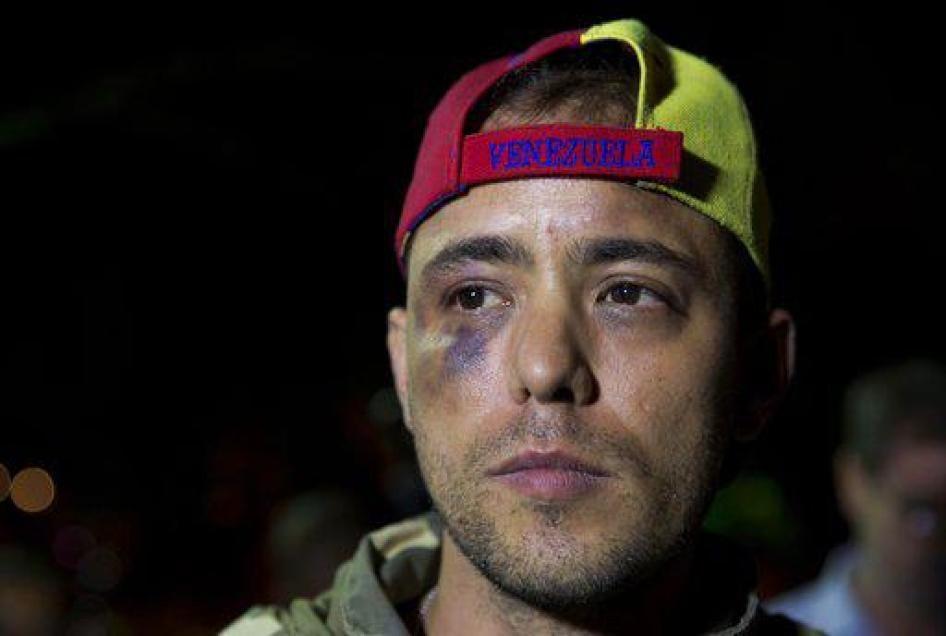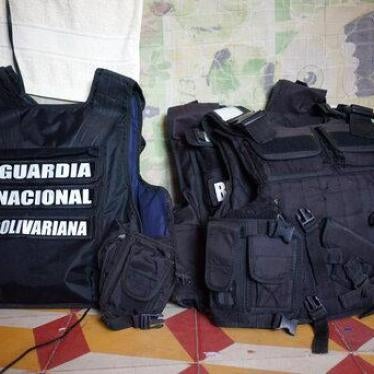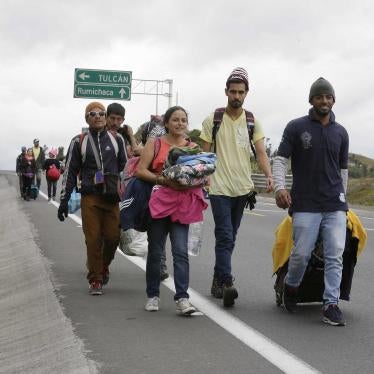(New York) – Venezuelan authorities should immediately release Jesús Medina, who they have arbitrarily imprisoned because of his reporting for nearly nine months, the Committee to Protect Journalists (CPJ) and Human Rights Watch said today.
On May 23, 2019, Medina is scheduled to be taken before a judge for his preliminary hearing, which has been postponed eight times. Agents from the National Bolivarian Intelligence Agency (SEBIN) detained Medina, who worked as a photojournalist for several outlets, on August 29, 2018. He was part of a team of journalists working on an investigative project at a Caracas hospital, said the National Union of Press Workers. He is being held in the Ramo Verde military prison. (The only other journalist currently detained in Venezuela is under house arrest, according to CPJ research).
“Venezuelan authorities should immediately drop the absurd charges against Jesús Medina and stop finding pretexts to prolong his pretrial detention,” said CPJ Central and South America Coordinator Natalie Southwick. “Jailing reporters and criminalizing journalism will not put an end to the profound crisis in Venezuela, nor hide it from the world.”
On August 31, Medina was charged with crimes including inciting hate, illegal enrichment, and criminal association, said a lawyer from local human rights organization Penal Forum who is on his defense team. The lawyer said that the criminal file does not include any legal or factual analysis to substantiate the charges. Under Venezuela’s vaguely worded anti-hate law, the crime of “inciting hate” is punishable by up to 20 years in prison. The law was passed in November 2017 by the pro-Maduro Constituent Assembly, which was created to take over legislative powers from the opposition-controlled National Assembly.
Under Venezuelan law, Medina’s preliminary hearing – in which prosecutors offer justification for the formal charges – should have taken place within 45 days. It has been delayed eight times, most recently on May 2. On six occasions, the delay was because the court had not issued the order for Medina to be transferred from prison to court on time, and the hearing could not take place in his absence, said another of Medina’s lawyers from Penal Forum. In the two other instances, the court had not requested the case file from an appeals chamber where it was sitting, which also prevented the hearing from taking place.
Medina was previously detained by Venezuelan authorities in October 2017 while reporting at a prison in northern Venezuela with two international journalists, according to news reports. He was reported missing the following month. He was found on a highway outside Caracas two days later, and said his abductors tortured him and threatened him with death, according to reports.
The Venezuelan free speech organization Espacio Público reported that between January and April this year, 37 journalists, 4 photojournalists, and 10 other media workers – including cameramen, technicians, and drivers – were detained. This is nearly double from the same period in 2018.
Recent cases include the detention of the Venezuelan journalist and human rights activist Luis Carlos Díaz in March; the detention and deportation of a US freelancer, Cody Weddle, a week earlier; and an incident in February, when a reporting team from Univision headed by Jorge Ramos was detained for several hours inside the Miraflores presidential palace and then expelled from the country.
“Jesús Medina’s detention is consistent with a pattern of arbitrary arrests and harassment of opponents, critics, and those who dare expose the truth about what is happening in Venezuela,” said José Miguel Vivanco, Americas director at Human Rights Watch. “Leaders from the Americas and Europe who are concerned about the lack of judicial independence and rule of law in Venezuela should support our call for his immediate release.”









